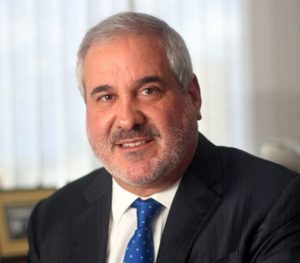
By Jeff Sistrunk
Law360 (May 22, 2020, 3: 25 PM EDT) — Steven C. Marks, managing partner at Podhurst Orseck PA, recently spoke with Law360 about the high-stakes COVID-19 insurance coverage cases his firm is leading and how he and his colleagues have not missed a beat after adapting to life in lockdown during the pandemic.

Speaking from his home in Miami, Marks discussed his new daily routine, the lawsuits his firm is pursuing on behalf of companies seeking coverage for losses incurred during governmentmandated closures, and the prospects of two pending petitions to consolidate COVID-19 insurance disputes into multidistrict litigation.
We have fortunately been able to adapt fairly quickly. Most of the staff in the office have computers that connect directly to the network, so to a large extent we have been able to operate seamlessly. We have a skeleton crew in the office to deal with mail and other things requiring a physical presence.
I have been utilizing Zoom and other conferencing capabilities extensively. I would say that in some respects, we are operating at a more efficient level than in the past. We have had to remain disciplined in terms of staying connected to each other and going through case lists to see what we can do under these circumstances.
The one limitation has been jury trials, which are important for our practice when dealing with defendants such as insurers. However, I have had Zoom mediations and settlement conferences that have been successful. Overall, I think we have been doing well.
As far as business interruption claims, we have filed two class actions, one against Chubb and one against Lloyd’s. Both of those insurance policies clearly covered business losses during a pandemic; they contain no exclusions for viruses or pandemics, which are found in other policies issued by these insurers.
We have also been retained by a number of other large businesses to evaluate their claims and will soon be filing standalone cases involving tens or hundreds of millions of dollars. That pipeline of business is starting to accelerate. Of course, without the ability to have a jury trial, which is the ultimate weapon for a plaintiffs’ lawyer, it will likely be a slower process.
Class actions, by their very nature, tend to take longer because you have several stages of discovery and procedural steps. What will define the landscape is the upcoming MDL hearings, which will decide whether these cases will need to be pursued individually, such that there would be a race to class certification around the country, or whether there will be some form of a consolidated proceeding. Until the MDL panel makes a determination, the class action claims are in a bit of a holding pattern.
They could conceivably consolidate these cases insurer by insurer. So, for instance, all Chubb policies are in one proceeding, and then all Travelers policies are in another, and so on.
The difficulty with any type of consolidated proceeding in this environment is that there are so many individual large claims out there that are not going to participate. Those businesses will pursue their claims independently of any class setting. This makes it unattractive for insurers to agree to consolidation. I don’t think you will find complete harmony in the positions of insurers. If all of the defendant insurers object, it is unlikely that there would be an MDL.
As far as the large individual cases, there are going to be a huge number around the country. Every single mall, office building, entertainment or sports complex, movie theater, and so forth will have a claim, and they probably will not want to subject their claims to class treatment. You will have a lot of litigation going on in different courts, pursuing different theories, no matter what ends up happening with the MDL.
I did not have an office at home prior to the pandemic. Now, I have set up a remote office in an area separate from my wife, the kids and the animals. Since it has become clear that this will last longer than expected, I have developed a routine, and I wake up every morning like it is “Groundhog Day.” I have become disciplined about going through a set schedule, with my day filled with phone conferences, Zoom conferences and other matters.
My family has been incredible about letting me have the ability to work remotely without interruptions, as though I am at my office. I have been very fortunate and very blessed. My colleagues at the firm have also done a great job of dealing with something so unexpected and devastating for the economy and our normal way of life.
For one, I think lawyers are going to be more willing to take video depositions remotely than in the past. That will cut down on travel, which can be an expensive and inefficient way to proceed. Just think of all the money being spent on flights and hotels just to do a two-hour deposition in some remote location.
Going forward, I believe courts will be more open to using technology on less important hearings, such as discovery matters or motion practice. We have had several substantive hearings done by Zoom, where the court was very able to review documents, and lawyers were able to present arguments without any difficulty whatsoever. It has proved to be very efficient, particularly when lawyers are in different locations around the country, none of which are the same location as the judge. That happens often with my practice.
This might be a wake-up call to use technology in an efficient way, and hopefully courts will continue to be open to it. Some judges have resisted it; they have not permitted Zoom hearings and have instead relied on papers. In the long term, I do not think that is in the best interest of justice.
–Editing by Marygrace Murphy.